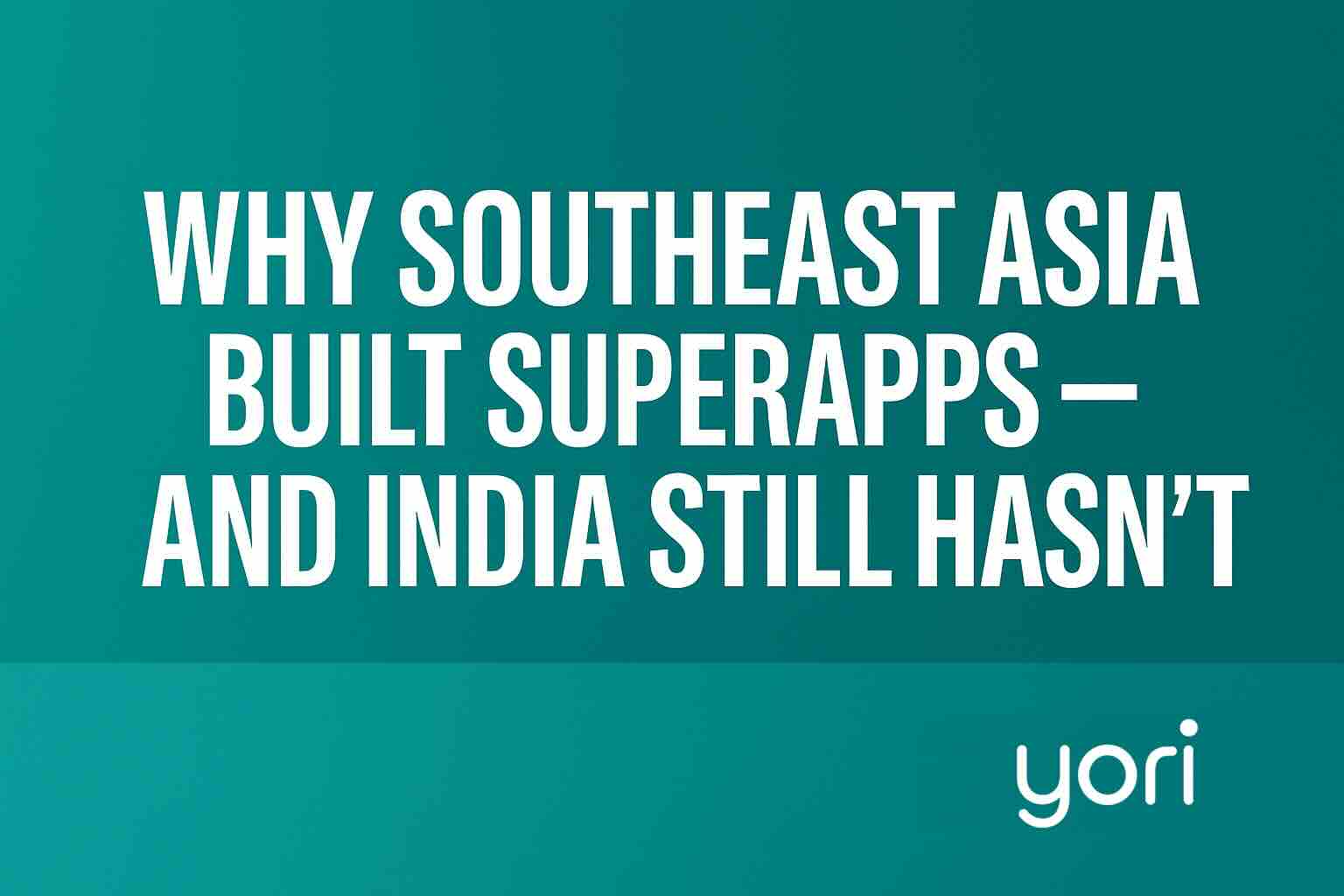
Why Southeast Asia Built Superapps — and India Still Hasn’t
A Yori perspective on the next billion-user opportunity
In Southeast Asia, Grab and Gojek didn’t just build apps—they built ecosystems. Start with a daily-use wedge (rides), earn trust and frequency, then layer payments, deliveries, and commerce on a shared infrastructure. That flywheel turned them into the operating system of everyday life.
The Indian Fallacy: Horizontal Before Foundation
India has talent, capital, and market depth. What it still lacks is an integrated superapp. Most attempts stitched verticals under one logo—without a unified identity, wallet, or data core. The result: siloed operations, duplicated CAC, fragmented retention, and inconsistent unit economics. A superapp isn’t a menu; it’s a system.
The Southeast Asia Lesson: Solve Deep, Then Expand Wide
- Lower CAC via shared funnels and cross-sell.
- Higher LTV through multi-vertical habit formation.
- Better unit economics from fleet, wallet, and data reuse.
This is compound growth through shared infrastructure—not spend.
India’s Next Leap: The Lean Superapp Era
Yori is engineered as a lean superapp: one identity, one wallet, one fleet, one analytics core powering many use cases. Instead of ten disjointed products, we run a single system serving rides, deliveries, services, and commerce. Each new service becomes cheaper and faster to launch because the platform has already paid the foundational costs.
Why Now?
UPI ubiquity, logistics maturity, and consumer comfort with in-app payments mirror Indonesia circa 2017. The gap is a fearless, integrated player willing to build systems—not bundles. We believe 2025–2030 belongs to capital-efficient, infrastructure-first superapps.
The Investor Lens
The Indian superapp opportunity isn’t saturated—it’s misunderstood. Value will accrue to platforms that crack cross-vertical retention and minimize blended CAC through shared rails. Keywords you care about: TAM expansion, retention cohorts, positive contribution margin, payback periods, ecosystem synergies, and scalability without burn.
What Yori Is Doing
- Unified rails: identity, wallet, fleet ops, and data all shared.
- City-first playbooks: depth before breadth, then replicate.
- Discipline over vanity: retention and repeat usage over paid noise.
In Closing
India doesn’t need another superapp attempt. It needs a real operating system for everyday life—engineered, not assembled. That’s Yori’s plan: fearless vision, sustainable execution, and compounding efficiency that turns services into an ecosystem.